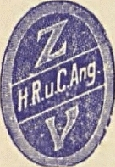Related Research Articles

The World Federation of Trade Unions (WFTU) is an international federation of trade unions established in 1945. Founded in the immediate aftermath of World War Two, the organization built on the pre-war legacy of the International Federation of Trade Unions as a single structure for trade unions world-wide, following the World Trade Union Conference in London, United Kingdom.
UNI Global Union, formally Union Network International (UNI), is a Global Union Federation for the skills and services sectors, uniting national and regional trade unions. It has affiliated unions in 150 countries representing 20 million workers. The Global headquarters is in Nyon, Switzerland. UNI Global Union ratified over 50 Global Framework Agreements with multinational corporations including ABN AMRO, Carrefour, H&M, DHL, Telefonica, BNP Orange and Banco de Brazil, Inditex Group, Kimberly Clark among others as of 2021.

The General Federation of Trade Unions (GFTU) is a national trade union centre in the United Kingdom. It has 35 affiliates with a membership of just over 214,000 and describes itself as the "federation for specialist unions".

The Free Association of German Trade Unions was a trade union federation in Imperial and early Weimar Germany. It was founded in 1897 in Halle under the name Representatives' Centralization of Germany as the national umbrella organization of the localist current of the German labor movement. The localists rejected the centralization in the labor movement following the sunset of the Anti-Socialist Laws in 1890 and preferred grassroots democratic structures. The lack of a strike code soon led to conflict within the organization. Various ways of providing financial support for strikes were tested before a system of voluntary solidarity was agreed upon in 1903, the same year that the name Free Association of German Trade Unions was adopted.

The International Federation of Trade Unions was an international organization of trade unions, existing between 1919 and 1945. IFTU had its roots in the pre-war IFTU.
The General Commission of German Trade Unions was an umbrella body for German trade unions during the German Empire, from the end of the Anti-Socialist Laws in 1890 up to 1919. In 1919, a successor organisation was named the Allgemeiner Deutscher Gewerkschaftsbund, and then in 1949, the current Deutscher Gewerkschaftsbund was formed.

The Trade Union International Public Service and Allied is a section of the World Federation of Trade Unions representing public sector workers.

The Trade Unions International of Chemical, Oil and Allied Workers was a trade union international affiliated with the World Federation of Trade Unions. It was often known by its French initials, ICPS.

The Miners' International Federation (MIF), sometimes known as the International Federation of Miners, was a global union federation of trade unions.

The International Graphical Federation (IGF) was a global union federation bringing together unions of printing workers around the world.
The International Union of Woodworkers (IUW) was a global union federation bringing together unions representing wood carvers, carpenters and joiners.
The International Union of Hotel, Restaurant and Bar Workers (IUHR) was a global union federation bringing together trade unions representing hospitality workers.

The Central Union of Hotel, Restaurant and Cafe Employees was a trade union representing hospitality workers in Germany.
The Union of Bookbinders and Paper Workers of Germany was a trade union representing workers involved in manufacturing paper and binding books in Germany.

The General Union of Public Sector and Transport Workers was a trade union representing workers in various industries in Germany.
The Central Union of Masons was a trade union representing bricklayers in Germany.
The Central Union of Potters was a trade union representing pottery workers in Germany.
The Central Union of Commercial Employees was a trade union representing white collar commercial workers in Germany.

The Catering Union is a trade union representing workers in the hospitality sector in the Netherlands.
The Hotel and Restaurant Workers' Union (HARWU) was a trade union representing hospitality workers in South Africa.
References
- 1 2 Ströhlinger, Rudolf (1931). Zentralverband der Hotel-, Restaurant- und Caféangestellten. ADGB. pp. 2107–2108. Retrieved 29 May 2020.
- ↑ Sassenbach, Johannes (1926). Twenty-five years of international trade unionism. Amsterdam: International Federation of Trade Unions. pp. 104–105.